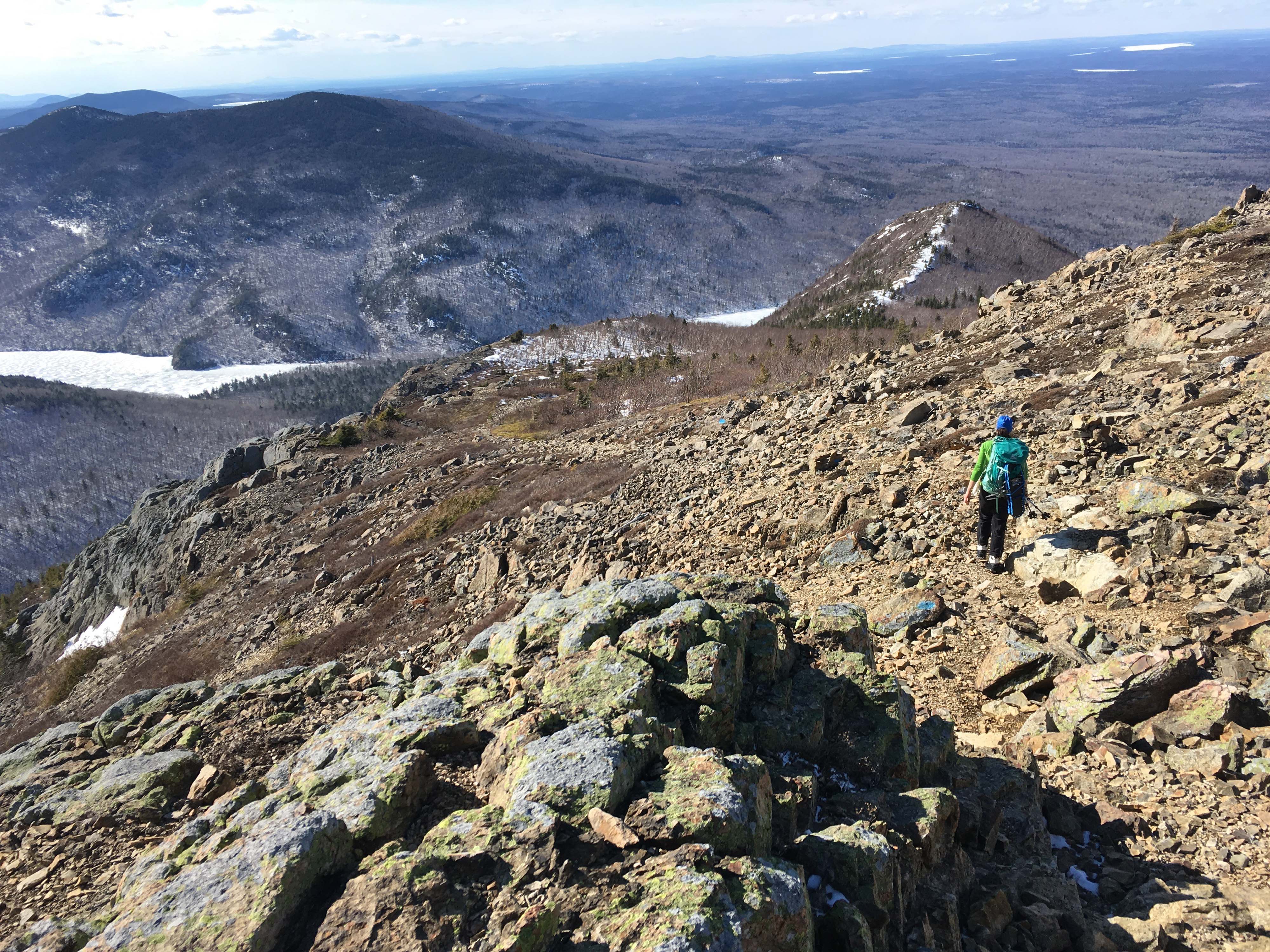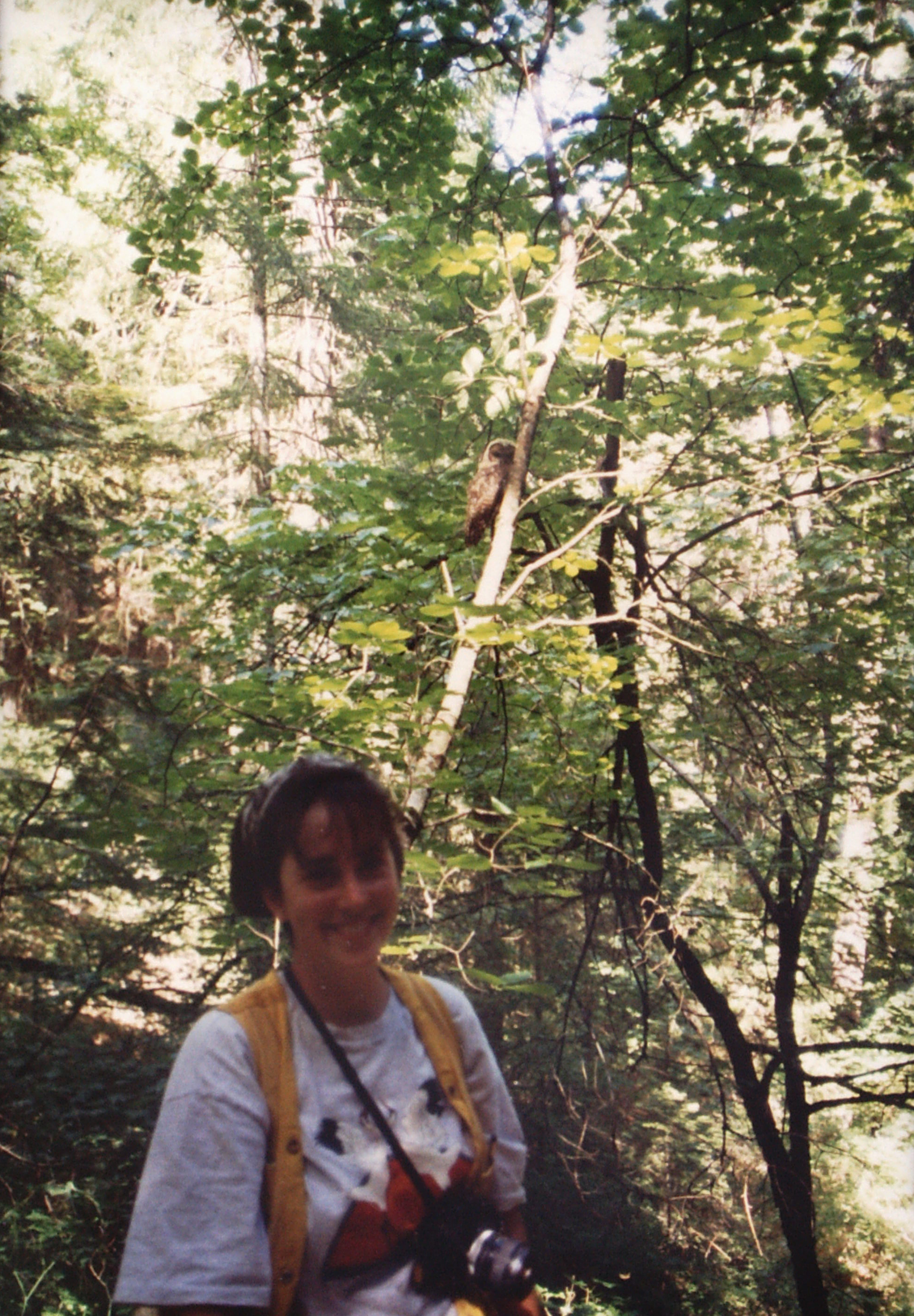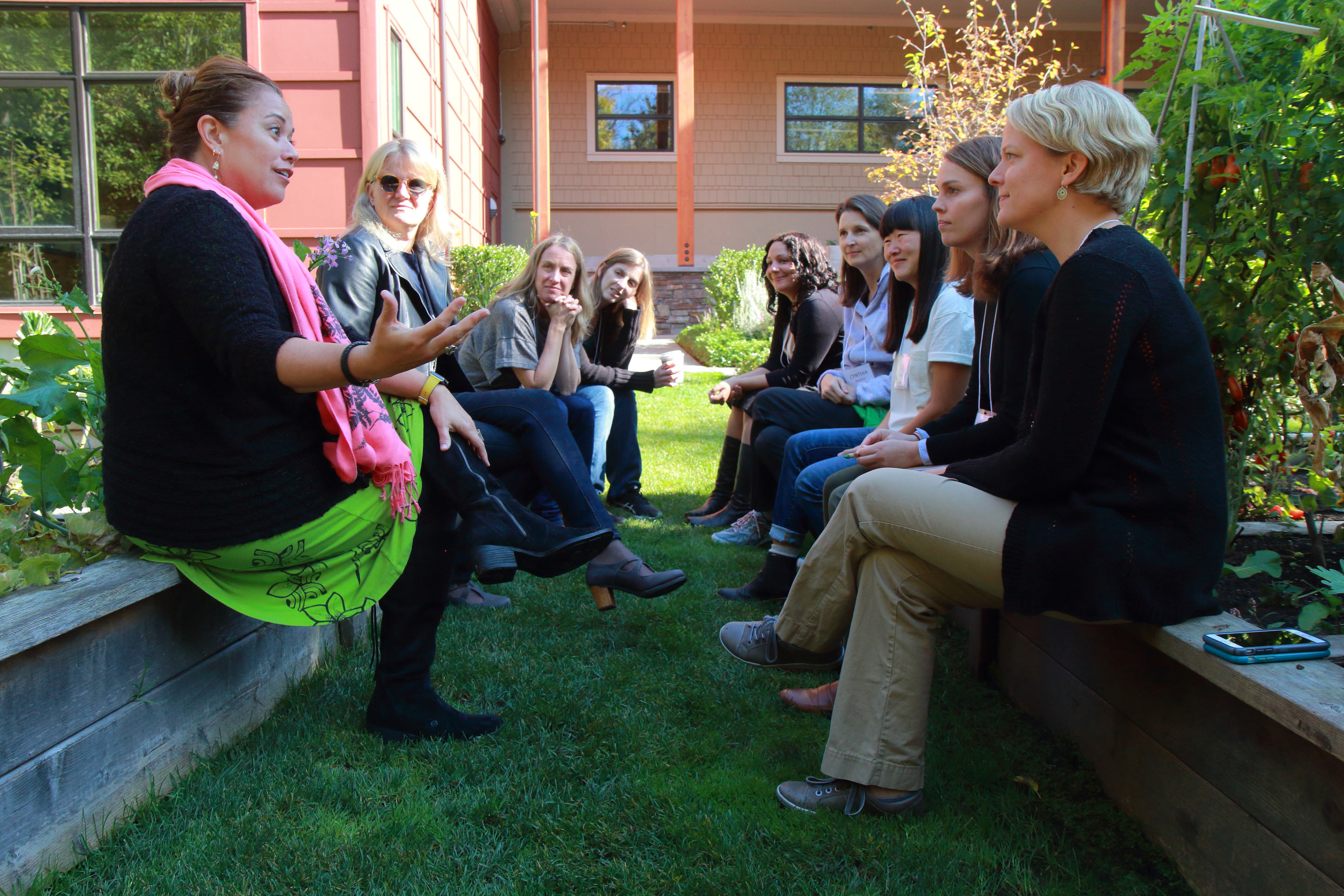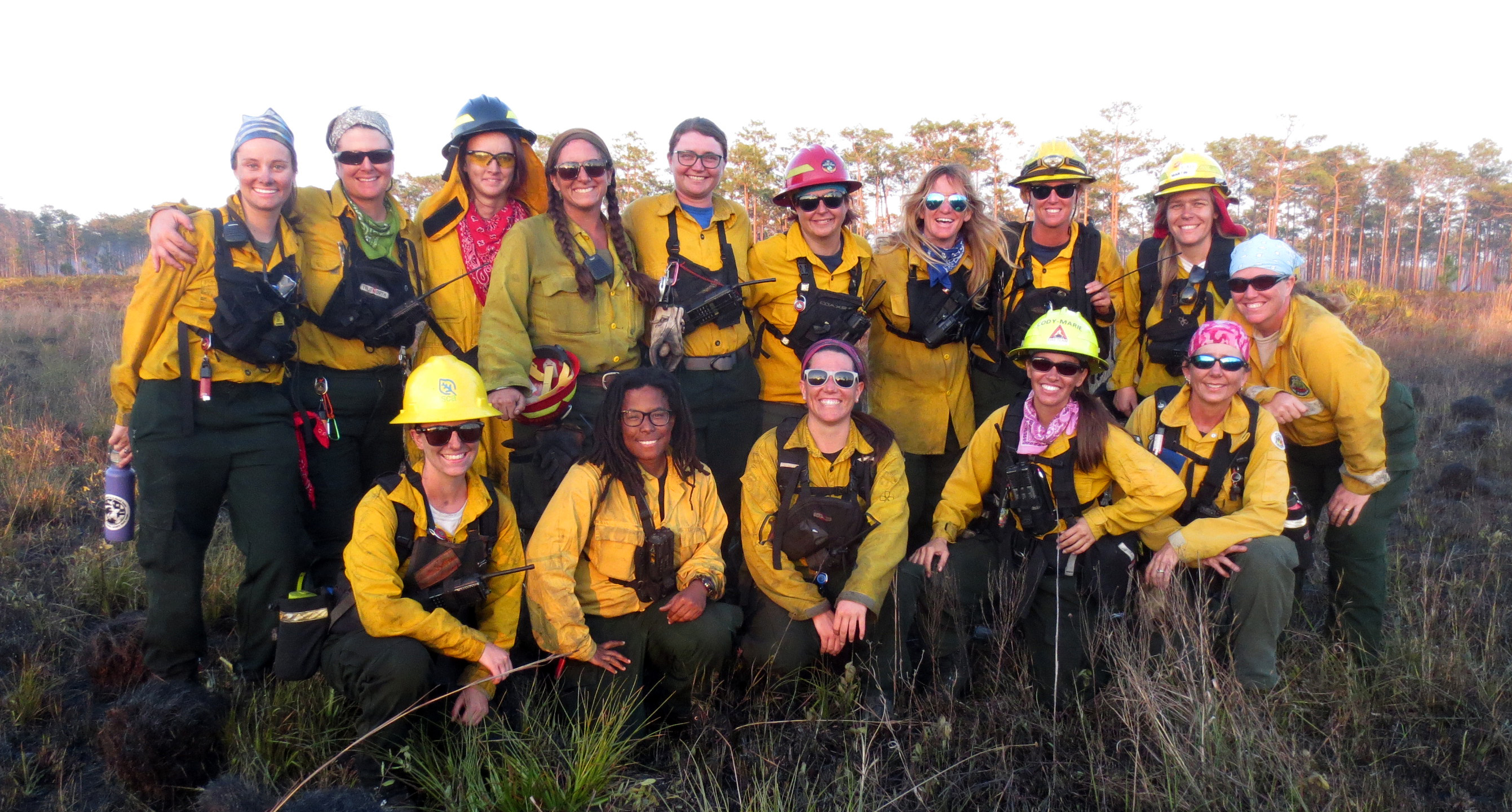Aren’t You Afraid? No, I’m a Scientist.
My work in a field once thought to be too difficult and dangerous for women.
By Samantha Horn, Former Director of Science in Maine
“Aren’t you afraid to drive across the country like that? Aren’t you afraid that if you go out in the field alone, you’ll be attacked/ your boat will capsize/ you’ll get lost? Aren’t you intimidated by being the only woman?”
These are just a few of the questions I have heard over my career in conservation and science, and I am sure they’re familiar to many other women as well. Expectations of women have been changing for centuries, and the 20th century was a blockbuster in that regard.
During my childhood, and then throughout my education in the 1970s, '80s and '90s, the push-pull about women’s roles was acute. Burned into the memory of many people my age is the Enjoli perfume commercial that set the standard for womanhood: that a woman could “bring home the bacon,” fix dinner, go directly to reading children bedtime stories and then—with perfect hair and makeup—don a flowing gown for the evening. An impossible standard, certainly, but one that was designed to comfort society that things weren’t changing too fast; that women were still expected to fill their traditional roles, even while they took on new ones.
Quote: Samantha Horn
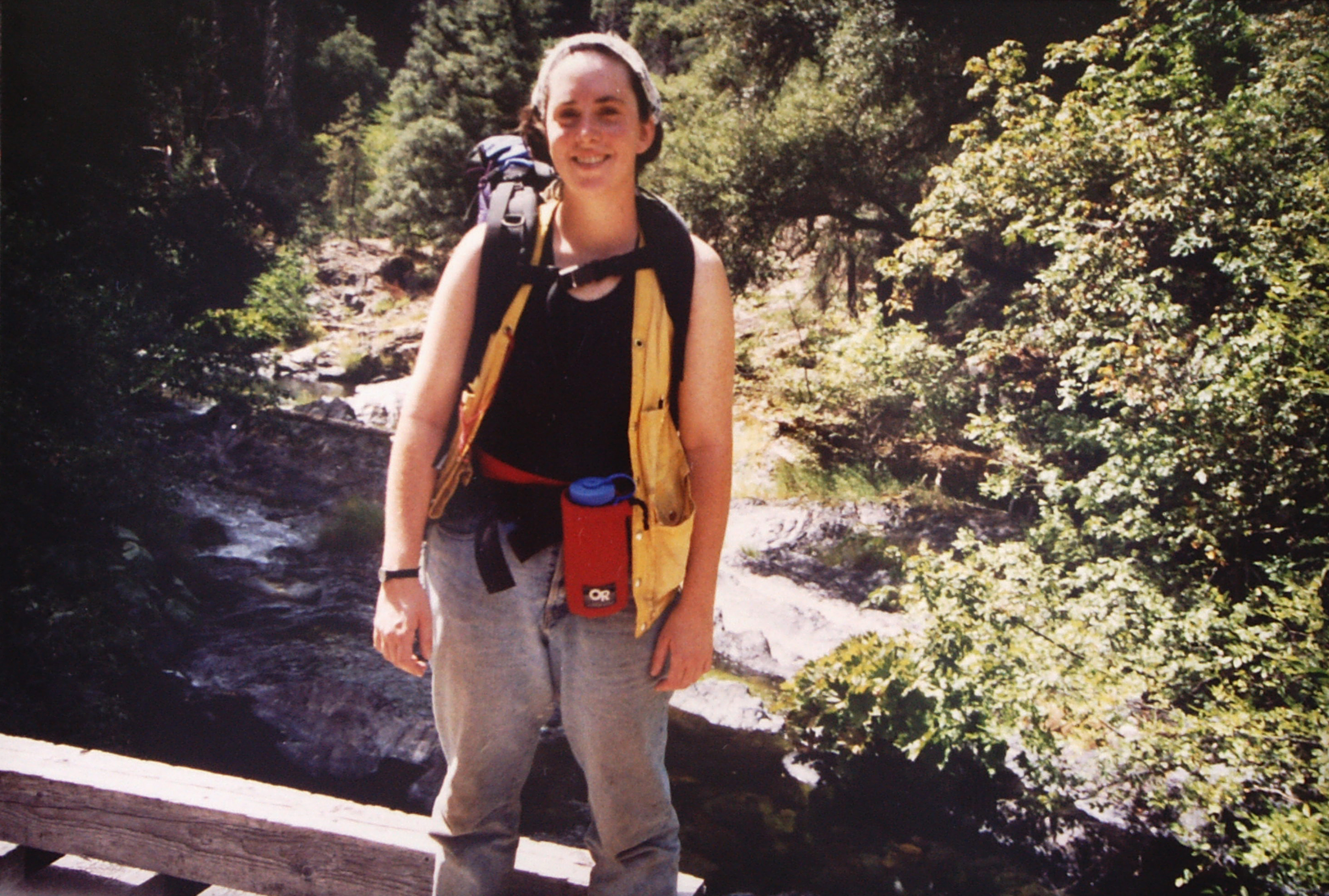
I’m no longer the 22 year old in the beat-up red Toyota, explaining at every stop why I’m traveling alone and doing science work. I can just talk about science. And that’s what I hope for tomorrow’s young scientists as well.
That uneasy transition meant that women who were interested in careers like science or conservation had to maintain an uncomfortable duality, in which their career was acceptable as long as they also exhibited traits that were considered “feminine.” That has manifested in my career in many ways; one notable effect was the expectation that to be a woman meant I should show fear and rely on men to help me through my nontraditional role.
Fortunately, I am blessed with a stubborn streak, and I insisted on doing things that were considered ill-advised or dangerous, such as driving across the country to take field jobs or hiking or camping alone. But at every step, I had to question whether I was doing the right thing. Was this actually dangerous? Would I be excluded from the ranks of femininity? Would I make the men in my world (or other women) uncomfortable, and suffer some kind of social consequence?
Quote: Samantha Horn
Sometimes, to make a meaningful difference, a scientist has to buck the trend without knowing for sure how it will turn out.

Now, of course, I am sure I made the right choice to pursue science, even when it made others uncomfortable. Science can often be like that—sometimes, to make a meaningful difference, a scientist has to buck the trend without knowing for sure how it will turn out. But for women, we took on both the professional risks and the gender risks simultaneously.
It is thrilling to see the progress that we continue to make as a society on the role of women in science. We are not yet at equality, of course, but now when a woman expresses her intent to pursue one of the sciences, the conversation quickly turns to her particular field of interest and how she might contribute, rather than the first remark being about how pioneering she is as a woman, and how she will have difficulties to overcome. In other words, that she should be afraid.
Especially in highly technical fields, like some kinds of engineering, we still have a long way to go, and success is far from certain. But progress is important, and worth celebrating. Those of us in science fields owe a tremendous debt of gratitude to the women who fought for basic legal rights, and then kept pressing for changes to society’s informal, but incredibly powerful, expectations of acceptable behavior.
Now that I am no longer one of the upstarts and have reached the “mentor generation” (signified by increasing amounts of gray hair and management duties), I can truly appreciate that my career is in no small part due to my mentors, both male and female, who encouraged my ability, regardless of my gender. And I am pleased to work for an organization like The Nature Conservancy, which explicitly values and demonstrates equity, diversity and inclusion in the workplace. I am incredibly gratified that I can mentor young professionals, both male and female, and that their success depends on innovation and smarts, not their ability to navigate gender norms.
I’m no longer the 22 year old in the beat-up red Toyota, explaining at every stop why I’m traveling alone and doing science work. I can just talk about science. And that’s what I hope for tomorrow’s young scientists as well.
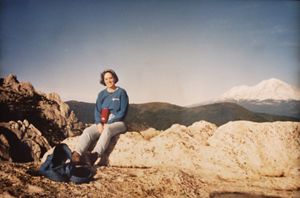
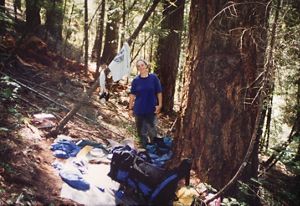
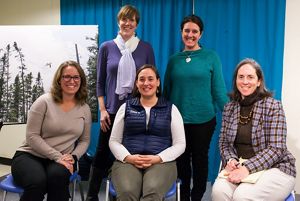
Women in Conservation
Women lead a wide range of science and conservation work at The Nature Conservancy in Maine—from stewarding ecological reserves, to conducting social science, to building healthy fisheries in the Gulf of Maine. That’s why TNC staff from Maine—Dr. Jocelyn Runnebaum, Tamara Lee Pinard, Kelsie Daigle and Samantha Horn, along with Dr. Alix Laferrier from TNC New Hampshire—recently joined on a panel for a free event at the South Portland Public Library. These skilled scientists and conservationists talked about their work, their diverse paths, and their thoughts on the future of women in conservation.
